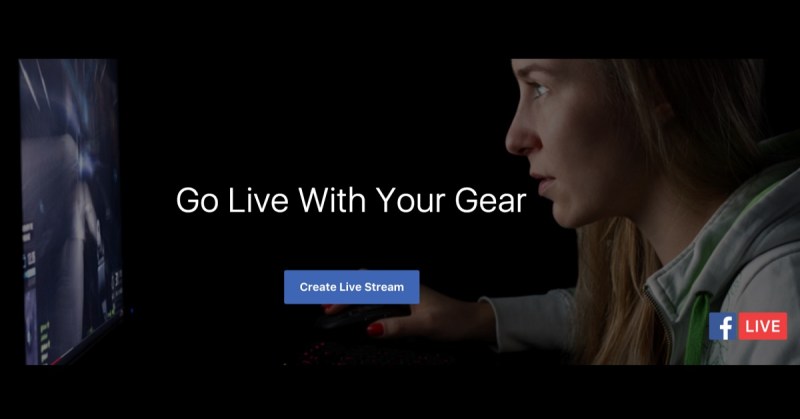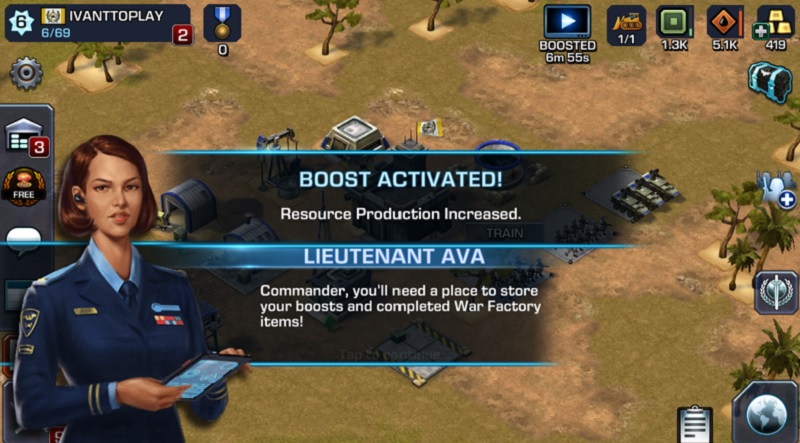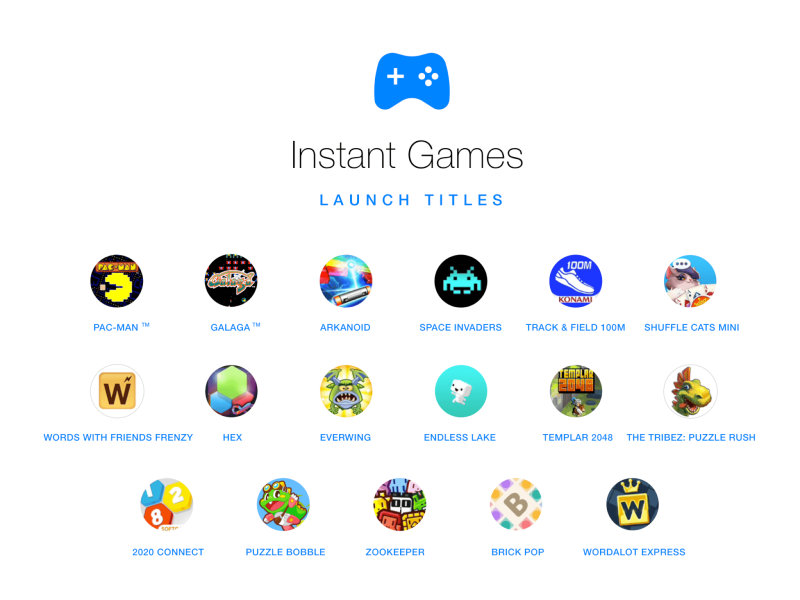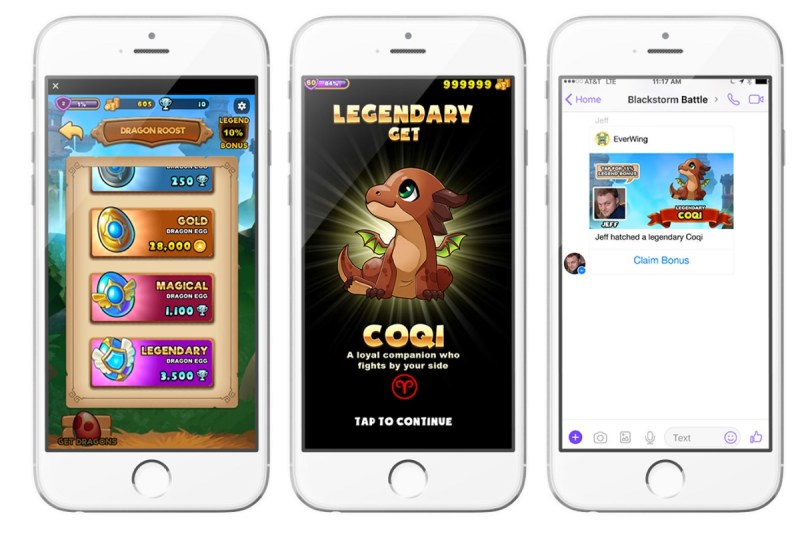Gaming is better with friends. And gaming is important at Facebook. Those are the takeaways that Brian Boland, vice president of publisher solutions at Facebook, wanted to give to game developers at the Casual Connect event in Seattle last week.
While Facebook’s audience is much broader than games, but it is in touch with a lot of gamers. More than 800 million players connect via Facebook, and 450 million people are connected to the Facebook pages of game developers. And Instant Games on Facebook Messenger have been played at least 1.5 billion times in the past 90 days.
Facebook did a survey of 6,000 players, and it found that 73 percent of them don’t mind ads in games. Those players are not expecting developers to work for free, and they see rewarded ads as away to get what they want in games without having to pay money. About 54 percent of Facebook’s audience plays games in a month, including 55 percent of all females. One in three of the players are over 45.
As a platform maker, though, Facebook has some challenges. Last week, Zynga chose to partner with Unity exclusively on Unity Ads in Zynga’s games. It’s not clear if that is bad news for Facebook, but it certainly means that the Zynga-Facebook partnership isn’t what it used to be. And while Facebook’s growth on mobile is good, its desktop gaming platform is getting weaker over time.
We talked with Boland about these topics at Casual Connect. Here’s an edited transcript of our interview.

Above: Brian Boland says that Facebook cares about games.
GamesBeat: I saw your talk, and it’s an interesting point to make about saying that Facebook cares about games and game developers. The almost rhetorical question is, “Why do platform owners need to tell developers that they care about games?” It seems like that question has a lot of history.
Brian Boland: I think the reality is that, when you look at an industry that’s very much a startup industry–there’s so much innovation, so many companies starting up in the gaming space, and then a bunch of startups created around the gaming space that focus on nothing but games, whether that’s for analytics or monetization or insights. People look at those as being die-hard, dedicated gaming platforms. When you look at a platform like Facebook that’s pretty broad in what we can deliver, and they know that video is blowing up huge on our platform, people can wonder. “Facebook’s not only doing gaming. They have some great offerings for us, but….“ They may not think of us first as a place that’s really a good home for gaming.
One of the things we want people to understand is not only that it is important, but why it’s important. We do really good work when things hook in to our mission, particularly with our mission focusing on community and bringing the world closer together. This is an area that’s a great marriage of all those things — our awesome experiences build community, bring people closer together, and do the things we do well around discovery and building businesses.
It’s not just telling people it’s important. It’s the why, so people think of us in the midst of all these gaming-specific platforms. They understand that we have something good to offer.
GamesBeat: Is gaming also overweighted in its importance to Facebook’s bottom line? The whole mobile game industry — you see these stats that say 80 percent of the revenue in mobile apps comes from gaming. Is it similar for you guys, or is it something else?
Boland: The thing that’s primarily interesting is the community aspect. The more that people connect through and games and play games and do that with a platform like Facebook—they can message around games, share things on Facebook, and it becomes a really virtuous cycle of things we do well, like social discovery and communication, that plug into the things developers do well around building compelling game experiences. It happens to be that our ad system will work exceptionally well for a gaming environment. That’s a nice addition, that we can not only help people with those community and communication aspects, but also grow revenue.

Above: Facebook Games
GamesBeat: Games are very good at connecting people.
Boland: Exactly. Even games you tend to play solo now, you’re still playing a game that’s designed to be communal. Most card games are communal, outside of solitaire. Most games have that aspect to them. You play a mix of robots or human beings now. The opportunity to be able to play more and more games with people you’re connected with—not just strangers in the game, but a real community of people who you’re friends and family with. That’s real now, as a potential. It’s not fully real from an actualization standpoint. But that’s compelling. That’s why people play games. We’re most excited about that.
We can help them build a business so they can not worry about all the challenges that come with building a business on top of building a great game. They can focus on building a great game and then plug in enablers for their business.
GamesBeat: How do you make the argument that Facebook is the best friend of the game developer? There are other platforms out there, as you say: Google, Amazon, Apple, Microsoft, or Sony. Can Facebook can be the go-to platform?
Boland: The way we try to look at things—we don’t try to convince people with a better pitch or a flashier dashboard. We try to convince people by working with them. They see if the experience and the results are better than they see elsewhere or not. Early on in our ads business we started to really change the conversation. Carolyn Everson would say to clients, “If we’re not growing your business’s results, don’t buy ads from us.” They weren’t used to that kind of conversation.
We’ve kept that as a mantra with all our businesses. If we’re not helping games see results through increased plays and increased connections and so on, that puts the onus back on us to make that better. Measure everything. Monitor everything. We think we’ll stand up on the merits. I expect people to try a bunch of different platforms. I expect people to work with a number of platforms. With the world moving more toward bidding, that enables an opportunity for the best of both worlds for a developer, to be able to bring in a lot of demand sources and bring in more compelling user experiences. That’s great for the developer, and frankly great for us.
GamesBeat: You’re making the case for advertising in your talk. Is it clear that advertising is the winning model for games?
Boland: It should be part of the portfolio. What we’ve seen with games is that—you’ve seen a scenario develop where games will reach a very large installed base and then have a relatively small number of users who do in-game purchases. You can start to build out a portfolio of ways you drive revenue: people who want to support the game by paying and people who are willing to support the game through advertising. There may be future models of monetization. I don’t know what those are. But there’s not a reason you shouldn’t say, “Let me build a portfolio around my business and see good growth.” That’s what I would expect to see people do more of.
A lot of developers are going to move past thinking “Ads are bad” or “Ads create subpar experiences” to “Okay, no, when bad ad experiences happen they are created as bad ad experiences. Let’s create good ad experiences and get access to good supply.” That’s the shift we’re seeing on the developer side.

Above: Brian Boland is vice president of publishing solutions at Facebook.
GamesBeat: Do you have more business weight on ads as opposed to in-app purchases? I don’t know how much the old idea of Facebook credits still matters.
Boland: I wouldn’t say we weight one over another. It’s really about a tool kit. I think you’ll see certain games do more with certain areas. It’s just going to be specific to the game. The idea is a robust tool kit, so the developer who knows their audience better than we do—they understand the motivation of the person playing their game, the way they want to engage with the game. They understand the kind of relationship they want to have. That gives them the tool kit to decide how much they weight one area or another.
GamesBeat: I saw the Eilers and Krejcik report on Facebook’s earnings. I think they noticed the game side of revenues is declining, I guess because of Facebook and desktop gaming in general declining. I don’t quite understand that. You guys are still big and growing in the mobile space. But is there something that explains that analysis?
Boland: Outside the earnings calls we don’t comment on earnings results. But it is important to understand that we have parts of our business that are driven around credits and parts that are driven around the ad network. Those are just different business lines that we look at and report on differently. A lot of the things we’re doing on the monetization side—the ad network stuff is just a different animal than the credits part of our business.

Above: If a user views an ad in a Zynga game, he or she can get a reward.
GamesBeat: Today I saw that Zynga teamed up with Unity on Unity ads and decided to exclude every other SDK they’d been working with. Is that a negative sign for the business in some way?
Boland: I don’t know yet. I’d heard that they made that decision today. I don’t know too many details on the what or the why, or what specifically — most of these deals that happen aren’t as universal as they sound. It’s usually for a portion of things and not the complete set of things. It also depends on how people integrate things. In a world where more things become biddable and more demand sources can play, you’re going to have tech layers, and then you’ll have multiple demand players on top of that.
GamesBeat: They said they would run “options,” so then Facebook comes back and — your SDK may not be there, but their SDK enables your presence. Maybe there’s zero impact in that scenario.
Boland: For us, the important things are — one, for advertisers, when they buy in our system, they know they’re going to get access to quality supply and real business results, real business outcomes. If we’re bidding in to their environment, great, we’ll get great business outcomes. Secondarily, the publisher knows they’ll get a highly relevant ad, very tailored to that individual, that adds to the experience. The things we’ve heard from the developer community and the excitement about our demand is not just that we cut good checks. It’s about how the ads people are seeing are not going to be bad, nasty, repetitive ads. They’re good stuff.
I’m sure depending on the details I’ll learn more about it. But I suspect that the work we continue to do to be a positive addition to both user experience and revenue will keep people engaged with us.
GamesBeat: When someone else looked at this, they said, “Well, my prediction is these six different SDK parties will all try to do the same thing and become the master layer that excludes all the others.” I guess part of Unity and Zynga’s argument is that an app is just going to run better if it has one SDK instead of six. I don’t know enough about how this all works to judge.
Boland: It’s an emerging space. The thing that I believe are true — more and more SDKs increases the size of your app, which increases the cost to download your app. That’s definitely something that is important for developers to take into consideration. That’s why you have a motivation to limit the number of SDKs.
It’s also true that the more demand sources plugged into your app — on an auction basis, not a waterfall — that’s the important trend that’s happening in the industry. It’s moving away from waterfalls to auctions. Waterfall is what you see in historical mediation platforms. You put demand sources into a waterfall. You call them one at a time. “Hey, here’s this user. Do you want to show them an ad?” If they say yes, show them an ad. If they say no, go to the next person in the waterfall. If it keeps saying no, you keep going down the waterfall until you get to a place where a user says yes. The way you do the waterfall is you do an average CPM. “This network in general pays us a dollar. This one pays us 90 cents.” You stack rank them by average CPM.
The reality of the world is that as things become more targeted and more relevant, a network that averages at a dollar will see one person who’s worth $10 and one person who’s worth five cents. What’s better for the publisher is, instead of making the call to one party, you make the call to all 10 parties, and say, “Here’s this individual in my app. What’s it worth to you to show them an ad?” One network says $10. The next one says five cents. The next one says 50 cents. “Great. $10 CPM, let’s show that ad.” It gives you real competition across all the demand sources, instead of having to go for average, average, average. You make more money because you maximize the return on each individual seeing ads in your app.

Above: Facebook Instant Games launch titles.
GamesBeat: And you get a better result to — one example I’ve heard was, you might have an individual who has an old phone, so you get a higher CPM if you show this person a video ad, but they have a bad experience. Maybe you take a lower CPM and show them an ad that works on their phone.
Boland: More and more of the systems have a good understanding of what’s happening there, yes. They’ll optimize around that.
GamesBeat: It seems like anybody could still serve that ad, then, even if their SDK isn’t included.
Boland: It depends on the way the SDK is implement, what demand sources they allow to plug in and how. The rules you set for an SDK can vary quite widely. We’re very committed to transparent marketplaces and real time pricing.
GamesBeat: But the game developers and publishers would probably say, then, “We still want the widest reach. We don’t want to unnecessarily shut off someone because we don’t want to run too many SDKs.”
Boland: It’s in their best interests, right. I need to understand more of the details around today’s announcement, but it didn’t strike me immediately as something to be particularly worried. Zynga’s a great company. Unity is a great company. We think highly of both of them.
GamesBeat: Your other message was that ads do not annoy people, which is encouraging. Rewarded video seems to be popular.
Boland: It’s so clear. I really wanted us to do this research, to understand how people really felt and experienced things. There is a concern in the industry around, “Oh, rewarded feels weird, that you’re telling someone they’ll get a reward for watching my commercial.” It’s taking what’s implicit in broadcast video — you know you’re watching the ads to see the TV show. People are in tune with that trade-off. It changes the mechanics there so you’re choosing to watch the ad to get credits, to get the next level, to get whatever outcome. It’s clear. People understand that trade-off.
There’s more control there, because people can choose. “Nah, I’m actually good.” Or, “Sure, I’ll watch the one ad to do that.” It really puts control in people’s hands, which is a great thing.

Above: Blackstorm Labs’ EverWing on Facebook Messenger.
GamesBeat: The instant games, everybody agrees these are turning out well. Is there a lot of thought that has to go into the monetization of that? Why can’t they just have ads right now?
Boland: Part of it goes into making sure we can design and deliver the right ads experiences. What pieces do we want to have as standard plug-ins that we can just easily render, as opposed to making them available to change the rendering up? Some of those questions around the rendering, since it’s inside the Messenger experience — do you have to have it coded into the HTML 5? Do we do the hook-ins? We’re partway through some of those questions. First and foremost, we’re making sure that — if the core user experience is great, we’ll get the ads working fine. It’s really been about focusing on that growth.
GamesBeat: Are you confidently signaling to developers that this is going to pay off? This will be a revenue producer?
Boland: We take our direction from them. We’ve heard loud and clear that distribution is cool. People playing the game is awesome. We have to build a business, which is exactly what you’d expect to hear from them. We absolutely listen. We’ll work toward delivering on that.
GamesBeat: And they want you to turn this on yesterday.
Boland: Oh, yes. Always.
GamesBeat: It almost sounds like going back to the good old days of very viral social networking.
Boland: It’ll be good viral. I think the industry — Facebook is quite a bit older. We’ve learned a lot about how notifications and viral sharing and those things work to delight both the gamer and the person who receives the notifications. I think we have an opportunity to build a compelling experience where you’ll get the notifications you want and engage your friends in the games that are exciting to them and to you. It really does deliver on this new mission we’re focused on, community and bringing the world closer together. Games do that. That’s a pretty happy marriage between our ability to deliver social connections and messaging and game developers’ experiences creating compelling content for people.

Above: Blackstorm Labs’ Gamebot in EverWing
GamesBeat: I understand some of the Asian networks are already doing the monetization. I wonder if that puts any pressure on you to speed this up, or at least study what they’re doing.
Boland: Most of our learnings do come from our developer partners, people who see things that work here or elsewhere. We learn from them, find out what they like and don’t like, see what their users are saying. That always informs what we do. We very much listen to those customers. What they learn and what they find out will work informs our development path.
GamesBeat: Is there anything else you wanted to talk about?
Boland: It’s a pretty exciting time. I do think that you’ve had a big shift for advertisers in figuring out mobile. Now you’ll have a big shift as advertisers shift toward mobile and toward game experiences, which is a new pattern for how people consume content. That’s a learning curve for advertisers.
Some of the best things happen when you just follow what people are doing naturally. People are playing a lot of games. People are streaming a lot of games. People are doing a lot of new activities to share all of that content. I think we’re in a spot where, clearly, games that are built on mobile are seeing great success for users, for gamers. The next shift will be advertisers focusing on how they deliver and get excited about the stuff that happens in games. That’s the next two years. But it aligns with everything we care about. It’s the people we care about. It’s high quality experiences. It’s stuff that drives results. This is going to be the next big playing field for advertisers of all sorts.
Disclosure: The organizers of Casual Connect paid my way to Seattle. Our coverage remains objective.

